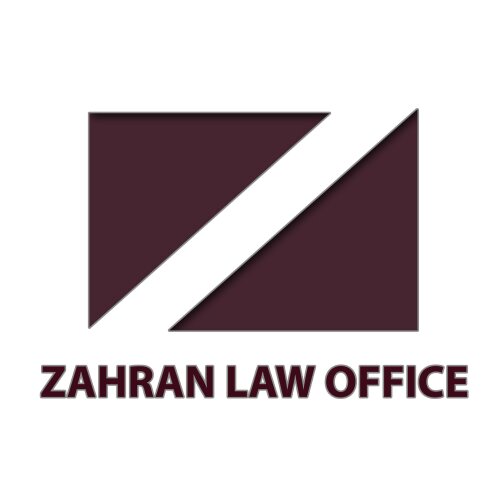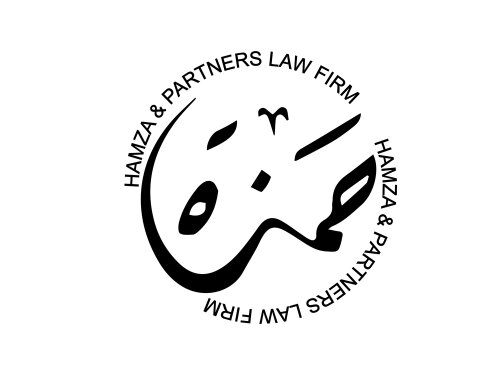Best Equity Capital Markets Lawyers in Cairo
Share your needs with us, get contacted by law firms.
Free. Takes 2 min.
List of the best lawyers in Cairo, Egypt
About Equity Capital Markets Law in Cairo, Egypt
Equity Capital Markets (ECM) are essential to Egypt's financial sector, especially in Cairo, the nation's economic hub. ECM refers to the arena where companies raise capital through the sale of shares or equity to investors, either publicly or privately. This may involve initial public offerings (IPOs), rights issues, private placements, and other offerings conducted on the Egyptian Exchange (EGX). The ECM space is governed by a complex set of regulations designed to protect investors, foster transparency, and promote market efficiency. Understanding Egyptian legal nuances is crucial for participants, as local rules differ markedly from those in other jurisdictions.
Why You May Need a Lawyer
Engaging in Equity Capital Markets transactions typically involves high financial stakes, strict compliance requirements, and the potential for significant legal exposure. You may need a lawyer for several common reasons, such as:
- Assisting with the preparation of IPO documentation and navigating regulatory filings.
- Ensuring compliance with the regulations of the Egyptian Exchange and the Financial Regulatory Authority (FRA).
- Conducting legal due diligence for both issuers and investors.
- Drafting and reviewing prospectuses, share purchase agreements, and underwriting commitments.
- Advising on disclosure obligations, insider trading restrictions, and market abuse regulations.
- Managing disputes or investigations arising from ECM transactions.
- Negotiating terms with underwriters, investors, and other market participants.
- Advising startups or established businesses on private placements or rights issues.
- Facilitating cross-border equity offerings and understanding applicable international standards.
- Ensuring tax efficiency and risk management in ECM transactions.
Local Laws Overview
Equity Capital Markets in Cairo are principally regulated by:
- The Capital Market Law No. 95 of 1992 and its amendments, which set out the core principles for issuing and trading securities.
- Executive regulations issued by the Egyptian Financial Regulatory Authority (FRA), providing detailed guidelines for public offerings, disclosure, and ongoing obligations.
- The Egyptian Exchange (EGX) listing rules, which regulate how companies list and maintain their shares on the exchange.
- The Companies Law, particularly with regard to the issuance of company shares and governance.
- Anti-money laundering and anti-fraud provisions applicable to all financial institutions and capital market activities.
Key local requirements include mandatory disclosures, thresholds for significant shareholdings, restrictions on insider dealing, and conditions for capital increases or decreases. Engagements with foreign investors are also subject to approval and may involve currency controls or sector-specific limitations.
Frequently Asked Questions
What is an initial public offering (IPO) in Egypt?
An IPO is when a company offers shares to the public for the first time on the Egyptian Exchange to raise capital. The process is strictly regulated and requires approvals from the FRA and adherence to EGX listing rules.
Who regulates equity offerings in Cairo, Egypt?
The main regulatory body is the Financial Regulatory Authority (FRA), which oversees the capital market, along with compliance to the Egyptian Exchange rules for listed securities.
What are the main documents required for an equity offering?
You typically need to prepare a prospectus, financial statements, legal opinions, corporate resolutions, and sometimes an underwriting agreement, depending on the nature of the offering.
Are there restrictions on foreign investors in the Egyptian equity market?
While foreign investors can participate in Egyptian capital markets, certain sectors may have limitations, and currency controls could apply. Approvals and disclosures might be required.
What are the disclosure requirements for a public offering?
Comprehensive information about the company, its financials, risks, business operations, and the terms of the offering must be disclosed in the prospectus, ensuring transparency and investor protection.
What is the role of a sponsor or underwriter in an ECM transaction?
Sponsors or underwriters assist in structuring the offer, marketing the shares, ensuring regulatory compliance, and sometimes guaranteeing the sale of a certain number of shares.
How long does it take to complete an IPO in Egypt?
The timeline varies depending on the company's readiness and regulatory review, but an IPO can take several months from preparation to formal listing.
Can private companies raise equity in Egypt without listing?
Yes, private placements are allowed, but they are governed by distinct rules compared to public offerings, often requiring fewer disclosures and involving a limited number of sophisticated investors.
How are disputes or regulatory breaches in ECM transactions handled?
The FRA may investigate, impose sanctions, or refer cases to the courts. Disputes can also be settled through arbitration if the parties have agreed to this mechanism.
What penalties exist for non-compliance with ECM laws in Egypt?
Penalties can include fines, suspension of trading or listing, criminal charges in cases of fraud or insider trading, and bans from participating in the capital markets.
Additional Resources
- Financial Regulatory Authority (FRA): The principal regulator for market participants and ECM transactions in Egypt.
- Egyptian Exchange (EGX): The country's main stock exchange, providing regulations, listings, and market data.
- General Authority for Investment and Free Zones (GAFI): For foreign investment queries and approvals.
- Reputable local and international law firms: Often publish guides or hold seminars on ECM topics.
- Accounting and auditing firms: Can provide guidance on financial reporting relevant to ECM transactions.
- Industry associations: Such as the Egyptian Capital Market Association, offering information and networking opportunities.
Next Steps
If you are contemplating an ECM transaction or need advice regarding equity offerings in Cairo, consider the following steps:
- Assess your objectives and readiness for an equity transaction with your internal management team.
- Engage an experienced lawyer or law firm specializing in Egyptian equity capital markets law early in your planning process.
- Gather the necessary corporate and financial documents for initial legal review and due diligence.
- Consult with a qualified financial advisor or auditor to ensure your financials meet regulatory standards.
- Be proactive in understanding the regulatory requirements to avoid costly delays or sanctions.
- Consider attending industry seminars or briefing sessions held by the FRA, EGX, or legal professionals.
- If you are unsure where to start, contact the Egyptian Bar Association or FRA for referrals to qualified legal professionals.
Taking early action and seeking specialized legal advice are the best ways to navigate the complexities of Egypt's Equity Capital Markets and to protect your interests throughout every stage of the process.
Lawzana helps you find the best lawyers and law firms in Cairo through a curated and pre-screened list of qualified legal professionals. Our platform offers rankings and detailed profiles of attorneys and law firms, allowing you to compare based on practice areas, including Equity Capital Markets, experience, and client feedback.
Each profile includes a description of the firm's areas of practice, client reviews, team members and partners, year of establishment, spoken languages, office locations, contact information, social media presence, and any published articles or resources. Most firms on our platform speak English and are experienced in both local and international legal matters.
Get a quote from top-rated law firms in Cairo, Egypt — quickly, securely, and without unnecessary hassle.
Disclaimer:
The information provided on this page is for general informational purposes only and does not constitute legal advice. While we strive to ensure the accuracy and relevance of the content, legal information may change over time, and interpretations of the law can vary. You should always consult with a qualified legal professional for advice specific to your situation.
We disclaim all liability for actions taken or not taken based on the content of this page. If you believe any information is incorrect or outdated, please contact us, and we will review and update it where appropriate.

















